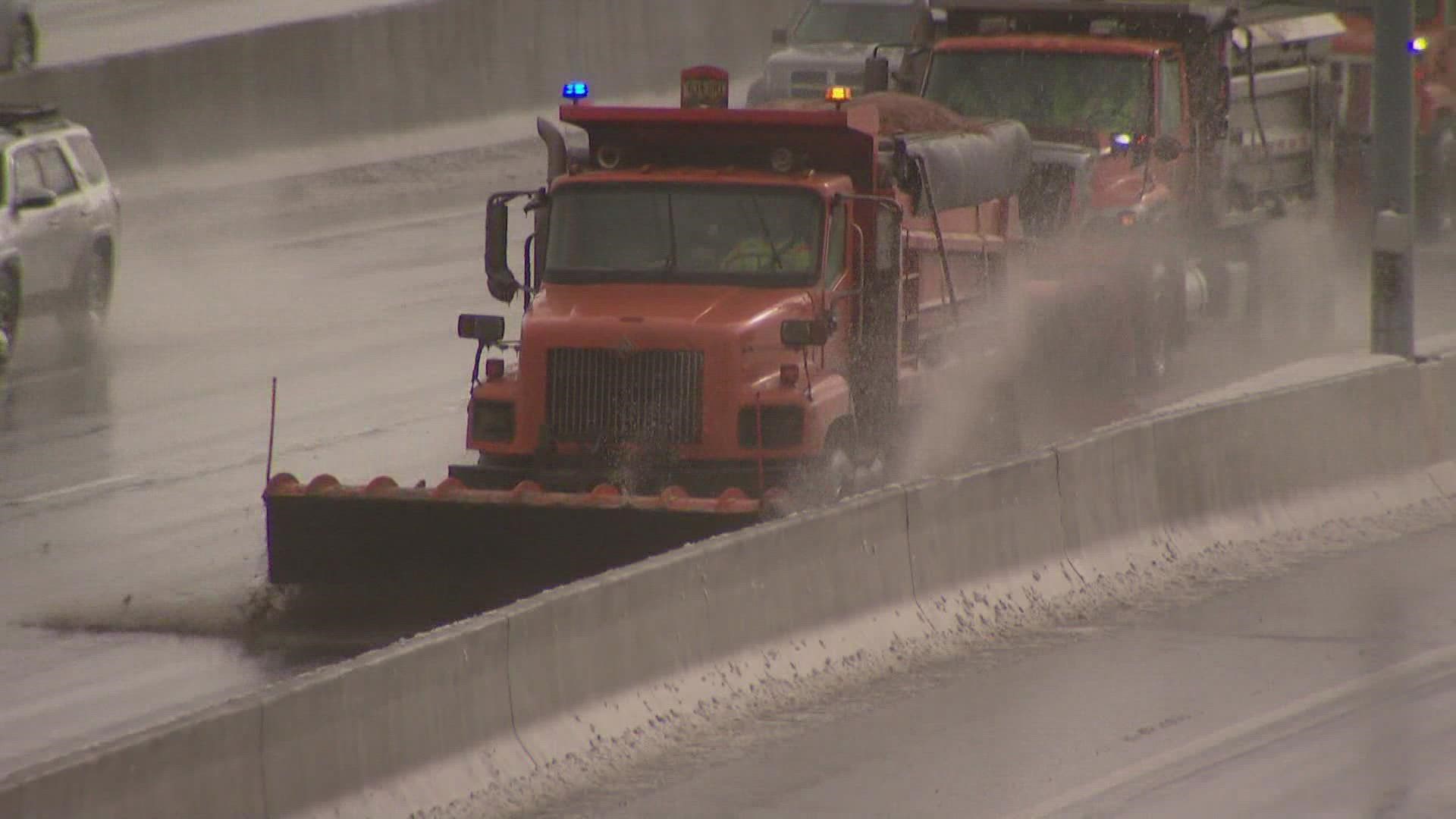COLORADO, USA — The season's first snowflakes have already started falling in the high country, and soon snow plows will be a regular sight along Colorado’s roadways.
But for years, the Colorado Department of Transportation (CDOT) has struggled to staff the positions that include highway maintenance and snow plow work. It’s especially tough in the high country where abundant snow draws not just tourism, but increasingly unaffordable housing prices.
“We’re roughly 300 short, about 27% short, on entry-level maintainers,” said John Lorme, CDOT’s director of maintenance and operations.
“It has become pretty difficult. The job market for CDL (commercial driver license) qualified individuals is great. You can almost write your own ticket if you have a good driving record and a couple years’ experience.”
Lorme said CDOT has raised starting wages to $19.30 an hour, offered new training that includes CDL licensure and associated costs, and has long offered a housing stipend for some employees based on where they live. But the problem persists.
“Our areas of greatest concern for housing is along the I-70 corridor from Aurora out to Glenwood Canyon,” Lorme said.
“Then you have places like Durango. You can afford a place in Durango, but you can’t find one. Whether its affordability or availability or both, there’s always something out there keeping maintainers from living where they work.”
And Lorme said it can be hard to compete on wages against employers who can offer prospective hires more than the state can pay. Now CDOT is trying something different to solve the staffing problem – a solution many other employers have turned to as well: workforce housing.
“All the ski resorts are doing it, mountain towns are doing it, everybody has some sort of workforce housing,” Lorme said. “I don’t want to reinvent the wheel.”
Using land CDOT already owns, the department now plans to build two rental developments. That includes condos in Frisco and single family homes in Fairplay.
“If you work [in those areas], you're eligible for the housing stipend. [In this case], we would keep the housing stipend as their rent, and the state would basically own the property.
CDOT is partnering with the town of Frisco for the first project. Lorme said they will split the $12.5 million cost and the 22 available units.
Lorme said CDOT already owned that land, which was previously used by employees living in mobile homes on the property. Lorme said CDOT is paying about $6 million dollars for its half of the condo project. He said the goal is to find a developer soon and break ground next spring.
Lorme said CDOT plans to have 11 units available for its employees, and will use an outside property management company to handle on-site matters.
Lorme said CDOT has another property in Fairplay, where the agency hopes to partner with a non-profit and Colorado home manufacturers to develop a small “micro-development” of about 14 single family homes for rent. Lorme said they expect that project to cost the agency $4 million. Similar to the Frisco plan, Lorme said the Fairplay project will likely involve other agencies or municipalities looking to share some costs and units for their own workforce.
Lorme said the funding for these projects comes from end-of-year savings, one “silver lining” of having so many vacancies.
“It’s a catch-22,” he said. “If I had the people, I wouldn’t need the housing.”
“We’re all in on the build portion ourselves,” Lorme said about the Fairplay project. “But we're going to identify certain units for stakeholders. They will pay us fair market rent for those. And that will help us fund the next [project].”
“I have about 26 [employee] positions in Fairplay,” he continued. “It’s a pretty strategic position that most people don’t think about. It feeds into Breckenridge, Keystone, Highway 9, Highway 285. Fairplay [housing] is gobbled up by everybody.”
But snow doesn’t wait for construction projects. In the meantime, Lorme’s team is forced to find short-term solutions.
While they are about 300 positions short of the 1,600 positions total, Lorme said CDOT will usually put only about 900 people in various positions on the road for any given storm.
“Along the I-70 corridor some of our maintenance shortages are 70% short, we’ll rotate forces around the state. We’ll deploy out of Burlington and the Kansas state line, where they’re 100% full. We will send those maintenance forces out on a four-day rotation to these areas that are kind of decimated with vacancies,” he explained.
“It gives them…additional overtime, a little bit of project pay. They’ll get to train and work in an area they traditionally don’t get to,” he continued. “It gives us a well-rounded force, but you can only go to that well so many times before people stop volunteering, and you’re ‘voluntold.’ And I don’t want to lower morale. And we still pay for hotels, per diem, pay the fuel and vehicle costs. We’re actually adding to our own problem by shipping all these resources, and it’s not consistent.”
Despite the challenges, Lorme promises the snow will get plowed.
“We wear this responsibility like a crown, we’re not going to fail,” he said.
“It is going to take us some time to get to certain roads. We’re going to focus on our primary roads -- interstates and U.S. highways. Some other smaller roads, some tertiary roads, are going to take a longer time before they see snow plows, but [we prioritize] our main highways that support commerce, emergency response efforts – police and fire - school buses, those types of things.”
SUGGESTED VIDEOS: Latest from 9NEWS

